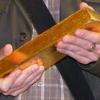Background:
Whilst researching NGF for neuropathy / dementia i came across a Chinese meta-analysis of
64 randomised studies that made the claim that an injectable version of a traditional chinese
herbal remedy 'danhong' worked better than NGF for treating diabetic peripheral neuropathy
in human subjects.
(See here: http://www.sjzsyj.or...DF.jsp?id=1364)
Specifically, daily injections of danhong (alone) were more effective than daily intramuscular
injections of mouse NGF (alone) in treating peripheral diabetic neuropathy.
This is actually a problematic statement, since there's always the question of what dosage
of NGF is being compared with what dosage of danhong ? I'm not going to get side-tracked
by this tangled argument. Instead i'm going to accept the premise .. and proceed.
Prima facie, that's an odd finding. NGF is specifically trophic of short fiber nerves.
Why should 'danhong' be better than NGF at restoring this type of nerve tissue ?
(Question A) Does danhong have neurotrophic effects ?
(Question B) Is danhong disrupting the cause of neuropathy (and hence permitting natural recovery) ?
(Question C) Is danhong doing both ?
The same paper made the point that NGF worked best when combined with other treatments,
like accupunture, vitamin B12, alpha-lipioc-acid (ALA), hyperbaric oxygen, etc..
Question 1: if you gave NGF injections _and_ danhong injections, would you have the _most_
effective treatment for neuropathy (relative to NGF and danhong alone) ?
Question 2: So if this works for small nerve fibers in the peripheral nervous system, could it work for
more serious conditions in the central nervous system: Alzheimer's, MS, Huntington’s, etc ?
(since small nerve fibers are abundant in the CNS)
Question 3: The obvious question is: What is danhong ?
Answer to Question 3:
It's derived from a herb used in traditional chinese medicine.
Here's the wikipedia page, with a nice picture of the herb.
https://en.wikipedia...iza&redirect=no
Here's a cut and paste from the wikipedia page:
Salvia miltiorrhiza (simplified Chinese: 丹参; traditional Chinese: 丹參;
pinyin: dānshēn), also known as red sage, Chinese sage, tan shen, or
danshen, is a perennial plant in the genus Salvia, highly valued for its roots
in traditional Chinese medicine.[2] Native to China and Japan, it grows
at 90 to 1,200 m (300 to 3,940 ft) elevation, preferring grassy places in forests,
hillsides, and along stream banks. The specific epithet miltiorrhiza means "red ochre root".
It's used to treat problems related to heart disease, angina, high blood pressure,
circulatory problems and stroke.
(from the wikipedia page)
Salvia miltiorrhiza has been widely used in China and, to a lesser extent, in Japan,
the United States, and European countries for the treatment of cardiovascular and
cerebrovascular diseases. In China, Salvia miltiorrhiza (alone or combined with other
Chinese herb medicine) was applied to the treatment of variety of diseases such
as angina pectoris, myocardial infarction[33], hypertension[34], hyperlipidemia,
and acute ischemic stroke.,[5][6][7]
But it's also an ingredient in a medicine for treating diabetes in asia
(and we know that diabetes is associated with neuropathy and dementia)
(from the wikipedia page)
Danshen is one of five ingredients in tangzhiqing (TZQ) used In traditional Chinese medicine for treating diabetes.
and
Salvia miltiorrhiza inhibits α-glucosidase activity.[25]
[NOTE: alpha-glucosidase inhibitors are used in the west as anti-diabetic drugs]
There's even the (inevitable) anti-cancer effect:
Dihydrotanshinone, tanshinone I, and tanshinone IIA are also under study for anti-cancer effects.[14][15]
And the (less inevitable) anti-HIV effect:
For HIV, chemicals in Danshen may block the effectiveness of an enzyme, HIV-1 integrase, that the virus needs to replicate.[27]
Danhong (or Danshen) seems to have a myriad, seemingly beneficial, effects.
It seems to have blood thinning and/or anti-clotting actions... and should not be taken with
blood thinning or anti-clotting medications.
From the wikipedia page:
Danshen has been shown to potentiate the effects of the common anticoagulation
drug warfarin, leading to gross anticoagulation and bleeding complications.[citation needed]
Danshen should be avoided by those using warfarin.[32]
With such a laundry list of beneficial effects, danhong must be a candidate longevity drug.
(In the sense that, if you take it, you're likely to live longer)
Answer to Question 1:
(Question 1: If you gave NGF injections _and_ danhong injections, would you have the _most_
effective treatment for neuropathy (relative to NGF and danhong alone) ?)
The short answer is ... yes.
Title: Effect of Mouse Nerve Growth Factor and Danhong Injection in the Treatment
of Elderly Diabetic Peripheral Neuropathy
Objective: To explore the curative effect of mouse nerve growth factor combined
with Danhong injection in treatment of elderly diabetic peripheral neuropathy(DPN).
Methods 120 cases of type 2 DPN were randomly divided into three groups(A/B/C).
Group A was treated with mecobalamine, [Vitamin B12 - should read methylcobolamine]
Group B with mNGF and
Group C with mNGF and Danhong injection.
The changes of blood rheology, nerve conduction velocity and clinical symptoms were
observed before and after treatment.
Results: The clinical symptoms,blood rheology,motor nerve conduction velocity(MNCV),
sensory nerve conduction velocity(SNCV)in group C had more significant improvement
than those in Group A and Group B group(P0.05).
The clinical symptoms,MNCV and SNCV in group B had more significant improvement
than those in group A(P0.05).
Conclusion: Mouse nerve growth factor combined with Danhong injection is effective in treating DPN
source: http://en.cnki.com.c...BU201211006.htm
So that leaves just Question 2:
Question 2: So if this [ie. danhong + NGF] works for small nerve fibers in the peripheral nervous system,
could it work for more serious conditions in the central nervous system: Alzheimer's, MS, Huntington’s, etc ?
(since small nerve fibers are abundant in the CNS)
Naturally, this question is of vital importance to any current dementia suffers.
And of particular interest to those (of us) who wish to see themselves compos mentis until
well beyond their 100th birthday
Probably, there is research on this being carried out right now somewhere in China.
It seems that the use of danhong for treating neuropathy started around 2013;
the first animal studies seem to have started then.
We already have a study looking at NGF plus danhong for neuropathy (as cited above)
Probably, someone's had the same idea as me, and is actively looking at NGF and
danhong for dementia right now.
I would like to dig out research papers to answer Question 2.
Probably most of these papers are written in Chinese and wont be available to us in the
west until someone translates them.
If the answer to question 3 is yes. This treatment could be available relatively quickly
since danhong is a herb and can be purchased form Chinese herbal suppliers. Plus,
both danhong and NGF are both in the Chinese national drug list, so presumably it
should be possible ... somehow, someway ... to buy the both of these drugs.
And if the answer is yes. I'd like to find out the answers to Questions A, B & C
shown in green font at the top of this post.
I warmly invite any Chinese speaking members of longevity.org to join me in the pursuit of an
answer to Question 2. If you know of any Chinese speakers that might be interested in this
pursuit i would be very grateful if you could point them this way.
Playground.
Edited by playground, 17 June 2015 - 02:14 AM.


























































